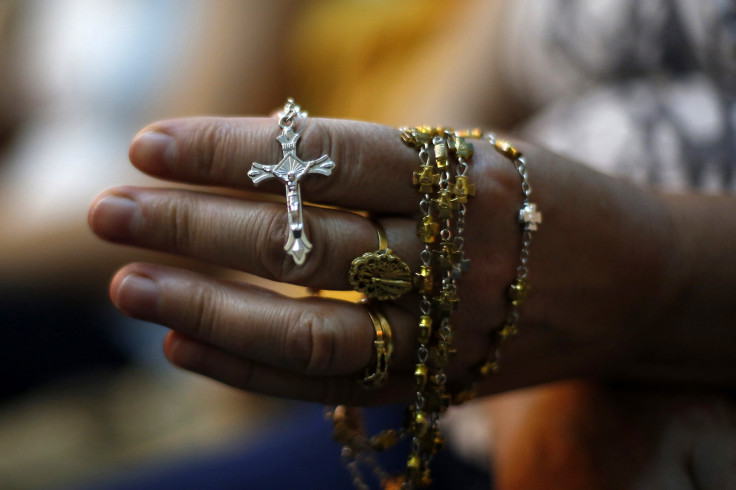ISIS Captures Largest Christian Town In Iraq And Several Others, Thousands Of Minorities Flee

Iraq’s largest Christian town and surrounding areas fell to Sunni extremist militants of the Islamic State of Iraq and Syria, or ISIS, on Thursday, sending thousands of residents fleeing toward Kurdistan, officials and witnesses said, according to an Agence France-Presse, or AFP, report.
With a population of about 50,000, Qaraqosh was a predominantly Christian town located between Mosul, the country's second-largest city now controlled by the ISIS, and Arbil, the capital of the Kurdish region. The town of Tal Kayf , which was also home to a significant Christian community as well as many Shabak Shiites, was abandoned overnight. Islamist fighters moved into Qaraqosh and surrounding towns following the withdrawal of Kurdish peshmerga troops who are fighting across various fronts against ISIS.
“I now know that the towns of Qaraqosh, Tal Kayf, Bartella and Karamlesh have been emptied of their original population and are now under the control of the militants,” Joseph Thomas, the Chaldean archbishop of Kirkuk and Sulaimaniyah, told AFP, adding: “It's a catastrophe, a tragic situation. We call on the U.N. Security Council to immediately intervene. Tens of thousands of terrified people are being displaced as we speak, it cannot be described.”
The latest advance by ISIS takes the Islamist fighters to within striking distance of the Kurdish Regional Government, barely 12 miles away from the border and 24 miles away from the capital Arbil.
“Tal Kayf is now in the hands of the ISIS. They faced no resistance and rolled in just after midnight,” Boutros Sargon, told AFP on the phone from Arbil, after fleeing Tal Kayf, adding: “I heard some gunshots last night and when I looked outside, I saw a military convoy from the ISIS. They were shouting 'Allahu Akbar'.”
Last month, the jihadist group swept across the Sunni regions of northwestern Iraq and captured Mosul on June 10 while purging Shiite Muslims of the Shabak and ethnic Turkmen minorities from towns and villages in Nineveh. The group's latest offensive dwarves the humanitarian crisis created by ISIS fighters' ultimatum to the Christians of Mosul last month.
"This is one of the biggest tragedies for Iraq's Christians since 2003," Faraj Benoit Camurat, the head of a Paris-based association supporting Iraqi Christians and other minorities said.
Kurdish peshmerga fighters, who are backed by the Iraqi Air Force, were reportedly expected to beat back ISIS' advance but the Islamist fighters have continued to advance successfully, seizing 15 towns in northern Iraq, the Mosul dam -- the largest dam in Iraq and a military base since it launched another offensive over the weekend, according to a Reuters report. The group also wrested control of areas surrounding Mosul from peshmerga fighters who had occupied the area when Iraqi government forces fled in disarray two months ago.
In the Sinjar area, tens of thousands of civilians, mainly belonging to the Yazidi minority, whom the ISIS brands as "devil worshippers," reportedly fled to the mountains where they have been stranded since Saturday, with little access to food or water. Their plight has raised international concern and leaders of the minority community, which practices a form of Zoroastrianism, a 4,000-year-old religion, warned that the entire community was at risk of being massacred or starved to extinction.
Proclaiming an Islamic Caliphate stretching from Syria to Iraq in June, ISIS, which now calls itself the Islamic State, announced its latest victories in a statement from its Mosul office.
“We are pleased to announce to the Islamic nation a new liberation in Nineveh province, teaching the secular Kurds a lesson,” the statement said, denying that an alliance of Kurdish fighters from Iraq, Syria and Turkey were regaining lost territory around Sinjar and elsewhere.
ISIS, or the Islamic State, which controls large parts of western and northern Iraq, poses the biggest threat the country has seen since the fall of Saddam Hussein in 2003. ISIS has deepened sectarian tension in the country and stirred up the most intense civil war seen since the U.S. occupation from 2006 to 2007, Reuters reported.
© Copyright IBTimes 2025. All rights reserved.




















